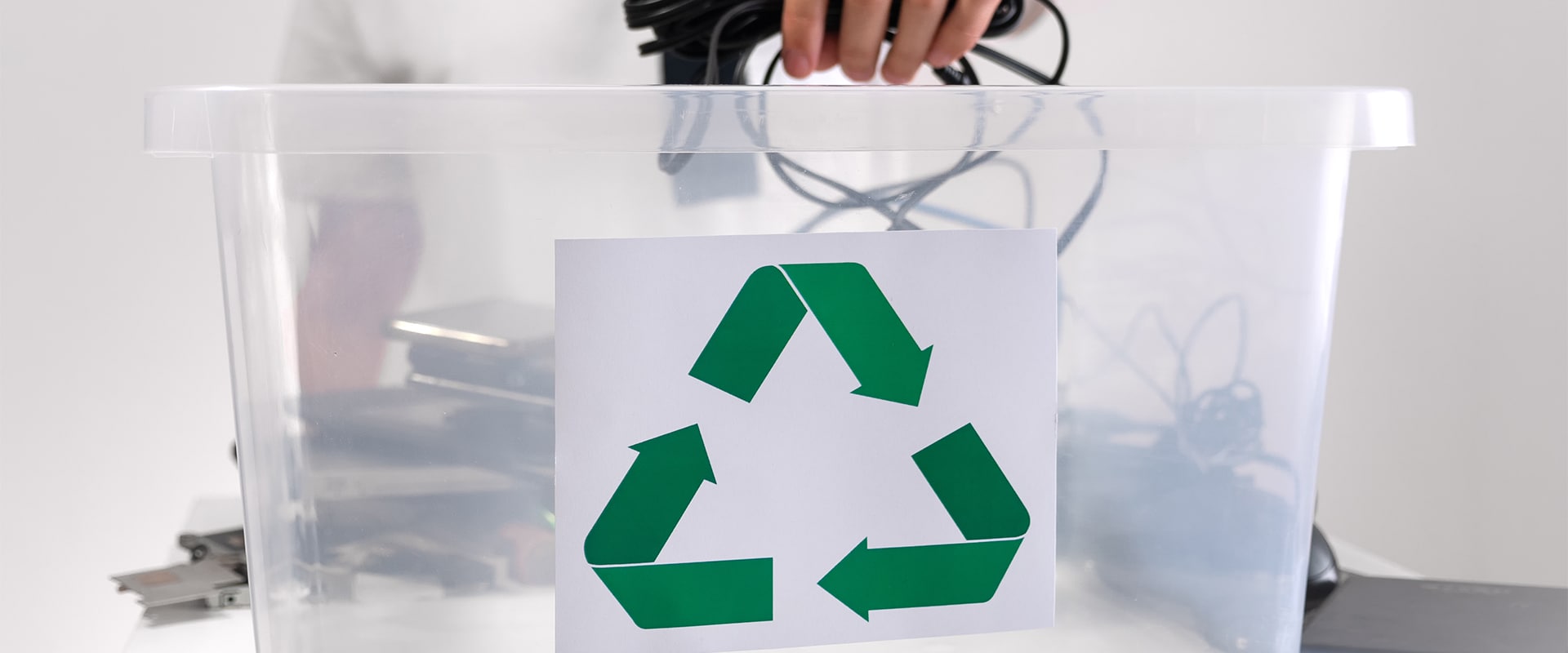Landfills hold several million tons of electronic waste. However, there are different ways to limit the production of this waste. If the recycling of computer waste is neglected, it contaminates the soil, air and water. This significant pollution affects both humans and wildlife. Given the increasing expansion of technology and the accessibility of electronic and computer equipment, the increase in the volume of electronic waste is no longer surprising and is becoming a concern.
Reducing e-waste

The treatment of electronic waste concerns up to 50 million tons per year. Only 12.5% of this waste goes through recycling. Yet the vast majority of IT equipment is recyclable or still works. It is therefore regrettable to find laptops, phones, USB sticks, tablets, batteries and televisions in landfills, while these pollute the environment. To limit their environmental impact, it is therefore necessary to reduce the amount of electronic landfills using electronic recovery. Simple and accessible procedures have been put in place for this purpose.
E-waste reduction techniques
Donation or sale of assistive devices
In order to limit the ecological impact of electronic devices that are still functional, it is enough to sell them. There is no shortage of buyers on some specialized sites like eBay or Craigslist. After the purchase, they can use them, resell them or open them to resell their pieces. Another alternative is to entrust them to computer recycling companies or visit a price comparison site. This type of platform can evaluate the price of the device and allow shipping, reuse and electronic recycling.
Reducing consumption
E-waste management is based on three points: reduce, reuse and recycle. Reducing is of the utmost importance. You can buy the latest devices and enjoy the benefits of technology. You may be constantly in demand for new electronics. However, before buying, ask yourself about the usefulness of your future purchase. The fewer electronics you buy, the more you preserve the environment.
The use of a reseller
Prestigious brands and sellers of electronic devices recommend their consumers to recycle in-store, online or at a drop-off site. They support recycling of cell phone, computer monitor, video card, motherboard, RAM, SSDs, computer mouse, keyboard and computer server among others. Some of them even offer the possibility to exchange old materials for gift cards. Before buying, do not hesitate to ask the specialist PC or the brand if it offers a buyback program. This option is often available through large retailers.
The organization of electronic devices

Since we tend to keep our electronics in our cupboards and drawers, we can forget about them. You can just arrange the use of your old devices and check whether they need to be replaced or not before buying.
Regulation of battery destruction
Batteries contain dangerous substances. For this reason, several states prohibit putting them in the trash. On the other hand, batteries are recyclable since they contain metal such as lead and plastic.
Limiting the production of WEEE
- Keep your electronics as long as they work. Do not fall for the beauty of new technology to lead to excessive consumption.
- Invest in a versatile device that can perform different tasks and limit the purchase of additional electronic equipment.
- Take care of your electronics regularly so they can last longer.
- Carefully apply the instructions for use to preserve the quality of your device in the long term.
- If buying a new device haunts you, resell your old equipment by applying the label “second-hand product”.


Comments